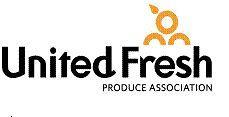
The US House of Representatives has passed the Senate version of the new Food and Drug Administration (FDA) Food Safety Modernisation Act (S. 510), which will give the FDA an expanded oversight over some 80 per cent of the food supply and will cost an estimated US$1.4bn over the next five years.
The bill will now go back to the Senate for reapproval, with a vote expected in the next few days.
Reacting to the news, the United Fresh Produce Association's senior vice-president Robert Guenther has welcomed a number of important provisions included in the bill, but has also criticised the Tester-Hagan amendment that was inserted in the Senate version to exempt small farms and producers under certain conditions – a move that he feels could weaken public health protection.
In a statement released to the industry, Mr Guenther outlined the Association's concerns, and said that there was still much work to be done moving forward into 2011:
'United Fresh has strongly supported modernisation of our food safety laws for the past four years, working with Members of Congress and the Administration, and testifying before House or Senate committees more than 10 times. There is no doubt the food safety bill passed as part of the Continuing Resolution contains a number of important provisions that we have long supported, including implementation of preventive controls for production and processing of specific fruits and vegetables when shown necessary by a risk-based, scientific analysis by FDA.
'Yet, the Tester amendment inserted into the Senate bill, and now passed by the House, weakens public health protection by exempting some producers and processors based only on the size of their business, their geographic location, or to whom they sell their products. The statutory enactment of non science-based exemptions would limit FDA's ability to assure consumers that all foods they purchase, whether at grocery stores, restaurants, farm markets, or elsewhere, have met the same food safety standards. We fear that this profound error will come back to haunt theCongress, public health agencies, consumersand even those who thought they would benefit from food safety exemptions. Food safety must be a universal commitment, shared by all who would grow, process and sell foods.
'While the food safety bill will do much good, it is highly regrettable that the House leadership failed to exercise its responsibility to engage with the Senate in a conference to fix these provisions. Our industry and a large number of House members have urged repeatedly over the past week that a conference could be completed within the remaining days of this session. When it became apparent that the House would need to pass its own bill due to the constitutional problemswith the Senate bill, this afforded the direct opportunity to provide due diligence to correct this mistake, and send a better bill back to the Senate, which must again pass the bill in any case.
'For all of us who have worked long and hard to pass food safety reform, this is a bittersweet moment, with a job only partially done. As we look ahead, we will continue to voice our strong support for uniform, risk-based food safety standards, whether in the remaining days of this Congress, or in the new Congress convening in January.'



